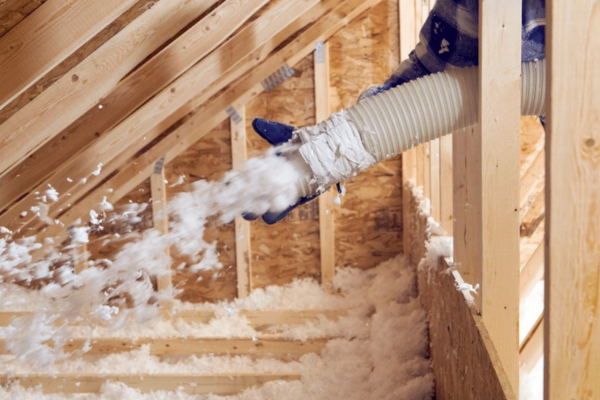
WAP Reauthorization Legislation Gains Traction in Congress
October 2, 2025
This summer, a bipartisan group of Senators took an important first step towards reauthorizing the Weatherization Assistance Program (WAP). On July 31, Senators Chris Coons (D-DE), Susan Collins (R-ME), Jeanne Shaheen (D-NH), and Jack Reed (D-RI) introduced the bipartisan Energy Savings and Weatherization Reauthorization Act of 2025 (S. 2570). This bill, in combination with the bipartisan Weatherization Assistance Program Improvements Act of 2025 (S. 1342, Reed, Collins) and the bipartisan House Weatherization Enhancement and Readiness Act of 2025 (H.R. 1355), would reauthorize WAP through 2030, authorize the Weatherization Readiness Fund, increase the Average Cost Per Unit (ACPU), and make other important updates to the program.
Why is Reauthorization Important?
WAP is a historically bipartisan program operated by the Department of Energy that provides formula funding to states for energy efficient upgrades for low-income homes. Since its creation, WAP has helped improve the lives of over 7.2 million low-income Americans and directly supports 8,500 jobs every year.
WAP’s statutory authorization expired on September 30, 2025 (the end of this past Fiscal Year). Reauthorizing WAP would ensure the Department of Energy remains statutorily required to continue to operate the program, while a lapsed authorization would omit these key requirements.
What’s in the Congressional WAP Reauthorization bills?
The current WAP reauthorization package includes three bills: in the Senate, S. 2570 and S. 1342, and in the House, H.R. 1355, introduced by Representatives Tonko (D-NY-20), Lawler (R-NY-17), Kaptur (D-OH-09), Riley (D-NY-19), and Delegate Moylan (R-GU-At Large).
Taken together, these bills would reauthorize WAP through 2030, authorize the Weatherization Readiness Fund, increase the statutory Average Cost Per Unit (ACPU), and address limitations on the eligibility of units that have only been partially weatherized.
Reauthorizing WAP is key to ensure the program can continue to operate effectively for contractors installing these upgrades and homeowners benefiting from the program. Beyond just reauthorization, the bills make important long-needed updates to the program, like adjusting the ACPU (the limit on how much assistance a household can receive) to account for inflation, rising wages, and equipment costs.
What Does This Mean for Contractors and Homeowners?
Before the government shutdown, DOE worked to approve state Program Year 2025 WAP plans so contractors and homeowners could still be able to work with and benefit from the program. Additionally, both chambers of Congress have proposed to continue to fund WAP in the upcoming Fiscal Year (FY) 2026 appropriations package; appropriations funding not only includes funding for the WAP program and the Weatherization Readiness Fund but also funding for key training & technical assistance initiatives.
House Committee Traction
On September 9, the Building Performance Association (BPA)’s Chief Policy Officer Kara Saul Rinaldi testified before the House Energy & Commerce Subcommittee on Energy in a hearing titled “Building the American Dream: Examining Affordability, Choice, and Security in Appliance and Buildings Policies.” During the hearing, Kara testified in support of H.R. 1355, the Weatherization Enhancement and Readiness Act of 2025 (the House’s WAP reauthorization bill) and emphasized the importance of WAP to contractors: “Weatherization is a job creator. Our contractors are very supportive of [WAP] because of that real connection they have with their customers and the training it provides them.”
Additionally, during the hearing, Rep. Tonko (D-NY-20) submitted to the record BPA’s Grassroots Support Letter for H.R. 1355, signed by nearly 750 contractors and weatherization stakeholders.
The following week, the House Energy & Commerce Subcommittee on Energy held a legislative hearing titled “Appliance and Building Policies: Restoring the American Dream of Home Ownership and Consumer Choice.” The hearing included H.R. 1355, where both House Energy & Commerce Committee Chair Guthrie (R-KY-02) and Energy Subcommittee Chair Latta (R-OH-05) both expressed interest in advancing a compromise version of the package. Furthermore, the Department of Energy’s Acting General Counsel made supportive comments about the Weatherization Readiness Fund.
Moving Forward
Advocates on Capitol Hill, including the Building Performance Association, continue to work with Congressional allies to ensure that these bills gain more supporters and eventually move through the legislative process. BPA urges WAP stakeholders to join our supporters list to get involved in our advocacy efforts.
For more information on the Weatherization Assistance Program, please see BPA’s weatherization page.
